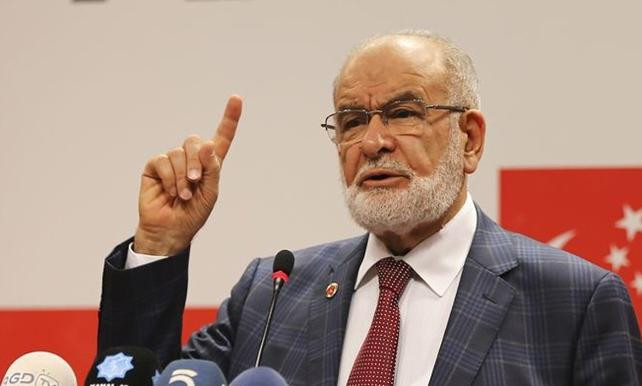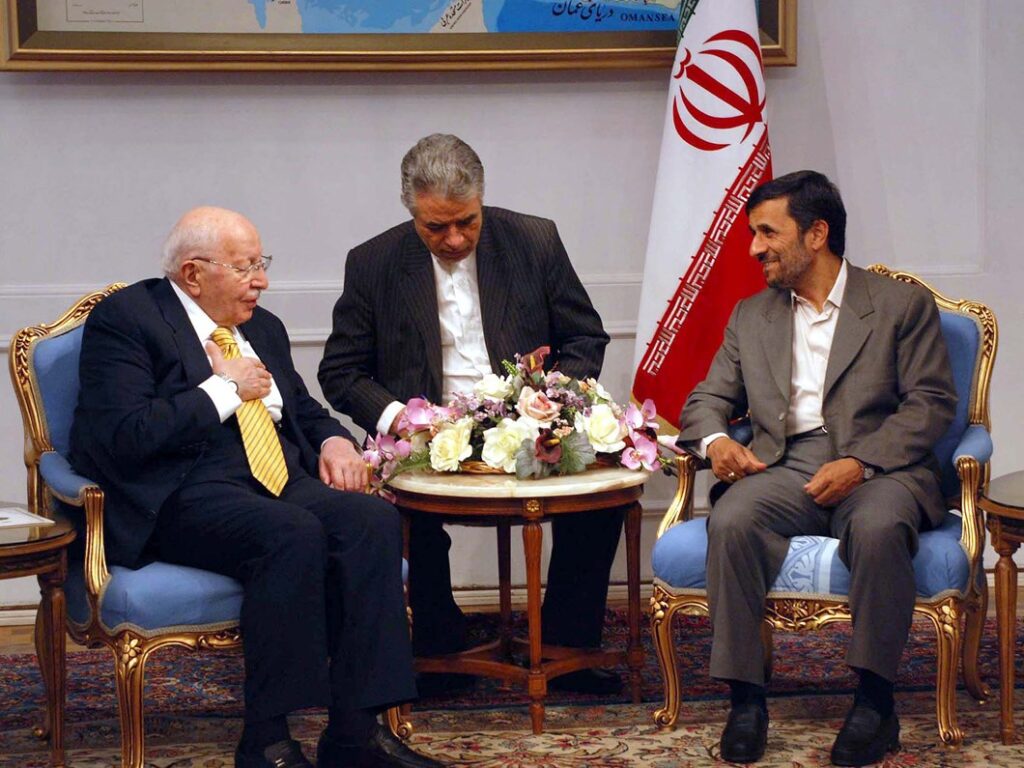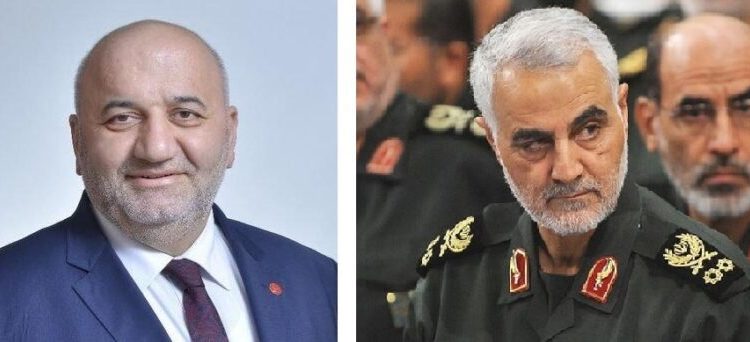Nordic Monitor
A virtual memorial for Iranian military commander Qassem Soleimani organized by the Iranian Embassy in Ankara has revealed Turkey’s Islamist Saadet (Felicity) Party’s close links to Iran and its Islamic Revolutionary Guard Corps (IRGC).
Hasan Bitmez, the deputy chair of the Felicity Party, founded by former Prime Minister Necmettin Erbakan, attended the event held by the Iranian Embassy on Saturday to commemorate Soleimani, who headed the Quds Force, the IRGC’s elite wing responsible for foreign operations.
January 3 marks the first anniversary of the death of Soleimani. Iran’s top security and intelligence commander was killed last year in a drone strike at Baghdad International Airport that was authorized by the US president. In its statement after the operation, the Pentagon accused Soleimani of planning attacks on Americans across the region, leading to an airstrike in Baghdad.
Temel Karamollaoğlu, leader of the Felicity Party, condemned the killing of Soleimani and said the Iranian commander was martyred in a US attack. Speaking to IRNA in February to mark the 41st anniversary of the Iranian Revolution, Karamollaoğlu said the revolution in Iran was among those events that have shifted the world path, noting that the revolution “has changed regional equations and has created a new modus vivendi in the international community.”
Following the criticism over his move, Bitmez told Independent Türkçe, a British media outlet’s Turkish-language site, that he met with Soleimani twice, in 2011 and 2014. Bitmez said he was well aware of the Iranian commander’s stance against American imperialism and had witnessed Soleimani’s resistance to Israel’s plans and attempts to undermine the unity and integrity of the region. According to Independent Türkçe, Bitmez was instructed by his party to join the Iranian Embassy’s online event.
Independent Türkçe, funded by a Saudi publishing house, is run by Nevzat Çiçek, a hard-core Islamist journalist enamored with the Iranian mullah regime. Nordic Monitor previously released a transcript of one wiretap, recorded on November 8, 2013 by Turkish police, which shows that Çiçek was talking about impediments to the establishment of an Islamic state based on Shariah law in Turkey and how the Iranian experiment could offer guidance in resolving problems encountered in Turkey.

According to Turkish media, the virtual memorial at the Iranian Embassy was disrupted by dozens of protesters. Demonstrators joined the open Zoom event meant to commemorate the Iranian commander but instead chanted “Murderer Soleimani.” They also changed their names and images to placards saying “Murderer Iran” and “Murderer Soleimani [Katil Süleymani].”
The protest forced the embassy to end the event halfway through the commemoration ceremony. In addition to Bitmez, the online event was attended by Iran’s ambassador to Turkey, Mohammad Farazmand, and Iranian and Turkish officials.

Felicity is the latest political party of Turkey’s National Outlook Movement (NOM, or Milli Görüş in Turkish), which is a continuous Islamic political parties’ movement that was led by former Prime Minister Erbakan until his death in 2011. Erbakan also laid down the roots of Turkey’s current ruling Justice and Development Party (AKP).
Erbakan had been deeply influenced by Egypt’s Muslim Brotherhood movement and, more importantly, the 1979 Islamic Revolution. Pan-Islamism and anti-Westernism became the two defining themes of his political program. Erbakan and his followers repeatedly hailed the Islamic Revolution as a victory against the Western world. Due to Turkey’s principle of strict secularism, his political parties were closed down in swift succession by the Constitutional Court. Despite political bans and party closures, he always re-emerged and never wavered from his belief in an Islamic Turkey.
In 1995 Erbakan led his Welfare Party (Refah Partisi, RP) to unexpected electoral success, finishing first with 21 percent of the vote. After striking a coalition deal, Erbakan became prime minister and made his first trip abroad to Iran on August 10, 1996. The trip was primarily designed to send a message to the West, and Erbakan signed a 22-year, $23 billion agreement to import natural gas from Iran. The RP and its leader Erbakan were banned in 1998 from holding political positions for five years.
In 2002 Erbakan was found guilty of forgery in the “lost trillion case’ concerning the loss of more than 1 trillion Turkish lira in Treasury grants to the RP. Citing Erbakan’s ailing health, then-President Abdullah Gül pardoned him in August 2008, paving the way for the removal of his political restrictions.
Following the lifting of his ban in 2009, Erbakan was elected chairman of the Felicity Party. A couple of weeks later Erbakan visited Iran, where he received a warm welcome from Iranian officials, including then-President Mahmoud Ahmedinejad.

In fact, the AKP’s principal founders including President Recep Tayyip Erdoğan had been members of Erbakan’s banned Islamist-oriented RP, and Iran has become more visible in Turkey’s state apparatus during Erdoğan’s tenure, first as prime minister and now as president. When Erdoğan visited Tehran in 2014, he said, “Iran feels like a second home,” a statement that sums up the president’s affection for the Islamist regime in Iran.
Turks have been alarmed for years by the increasing presence of Islamists, including some with alleged ties to the Iranian regime, in critical positions of power in Ankara. In the most notorious case, Hakan Fidan, Erdoğan’s close confidant with well-established pro-Iranian sympathies, became the head of Turkey’s National Intelligence Organization (MIT) in 2010. The state bureaucracy also developed closer ties with Iran after a failed coup in Turkey in July 2016.
An investigation called Tawhid Salam (Tevhid Selam in Turkish), which was launched by Turkish prosecutors in 2011, uncovered a sophisticated espionage network run by the IRGC’s Quds Force in Turkey and exposed the extent and depth of infiltration in Turkish institutions by Iranian elements. The investigation also revealed Erdoğan’s ties to IRGC generals and how Fidan, who played a central role in tightening Turkish ties with Iran, worked with the Iranian regime.












